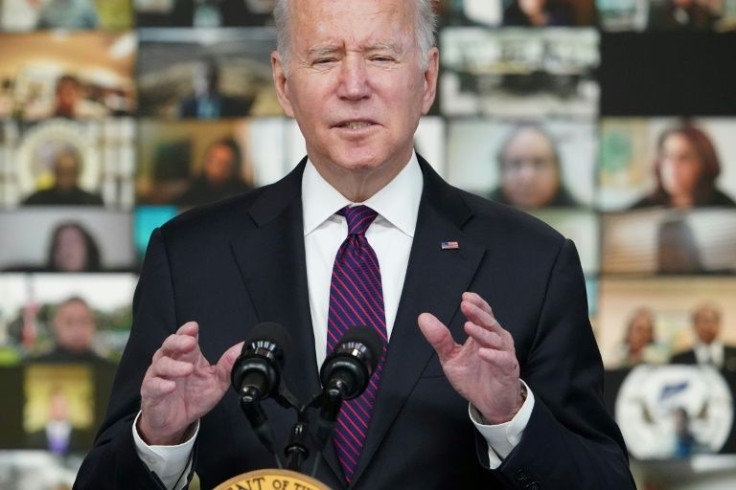Biden Eyes Desert Drilling Ban At US Tribal Summit
President Joe Biden told a summit of Native American tribal leaders Monday that he intends to extend oil and gas drilling restrictions in a swath of New Mexico desert considered sacred.
Biden said that "taking action to protect the Greater Chaco Landscape... from future oil and gas leasing" was one of his priorities.
The toughening of regulations in the New Mexico region is Biden's latest push to protect wild and historic areas from energy companies, in a break with the aggressively pro-drilling policies of his predecessor Donald Trump.
Ahead of the summit, the Biden administration said it was considering a 20-year ban on new drilling in the Greater Chaco area.
The Chaco zone has "great cultural, spiritual, and historical significance to many Pueblos and Indian Tribes" and contains "thousands of artifacts that date back more than one thousand years," the White House said.

It is also one of 24 places in the United States inscribed on the UNESCO World Heritage List.
The drilling ban would only apply to federal leases in a 10-mile (16-kilometer) zone around Chaco Canyon. It would not affect existing operations or lands under private, state or tribal authority.
The proposed restrictions on drilling come as Biden faces political pressure over rocketing fuel prices amid a broader rise in Covid-19 pandemic-related inflation.
Trump was cheered by his Republicans when he stripped federal protections around the country to encourage oil and gas production.
Biden has sought to roll that back. In October, he restored environmental protections for two wild Utah expanses linked to America's indigenous history and a biodiverse area of the Atlantic.
Biden also became the first US president to issue a proclamation for Indigenous Peoples' Day, which coincides with the increasingly controversial national holiday celebrating explorer Christopher Columbus on October 8.
© Copyright AFP 2024. All rights reserved.











